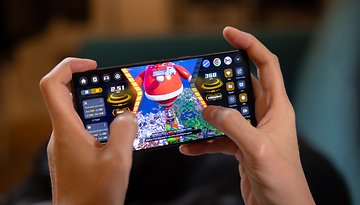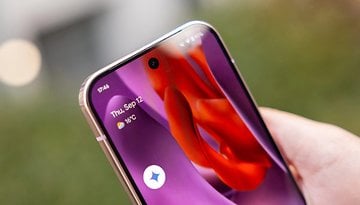Apple iFold: why a foldable smartphone from Apple both worries and intrigues me
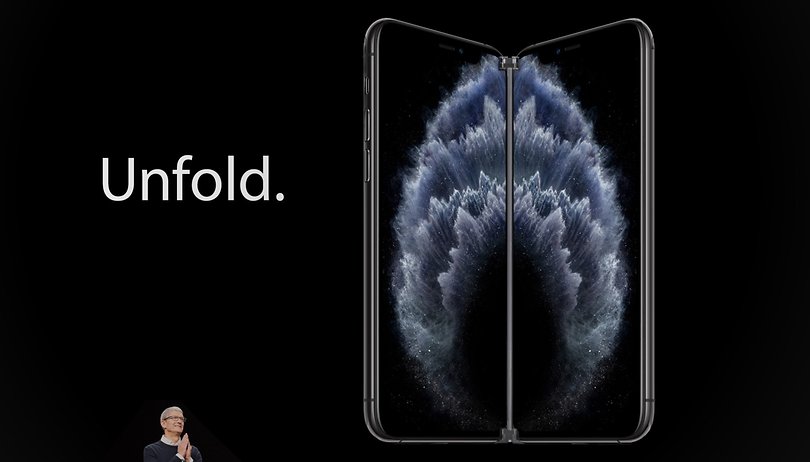

"Foldable smartphones will be the next revolution," Samsung claimed in 2019 before the tumultuous launch of the Galaxy Fold. A follow-up, if not a launch, is coming from Apple according to the latest leaks about a future foldable iPhone. A prospect more than exciting for any technophile but which worries me precisely because Apple is in control.
Leaks pulled out of his hat of the sulfurous Jon Prosse on Tuesday, June 16, suggest that Apple is working on a concept of a foldable dual-screen smartphone with a design similar to that of the Windows Surface Duo. The leaker thus describes that this hypothetical foldable iPhone would be composed of two separate screens held together by a flexible hinge.
Apple’s “foldable” iPhone isn’t really a foldable. ?
— Jon Prosser (@jon_prosser) June 15, 2020
The current prototype has two separate display panels on a hinge.
Round, stainless steel edges like current iPhone 11 design.
No notch — tiny forehead on outter display that houses Face ID.
Obviously, this leak should not be taken with a pinch of salt and the fact that Apple has filed many patents for concepts of foldable smartphones, and it generally means nothing in itself as these prototypes may very well never come out of Cupertino's R&D labs. But if you extrapolate the idea that these leaks reflect Apple's vision of the foldable smartphone, the prospect of a foldable iPhone immediately makes me a little less excited. Let me explain.
Apple doesn't want to break new ground, it wants to break open doors...
Apple is no longer an innovator. It's a statement that horrifies me because it's been so badly misrehearsed by the anti-Apple people. Apple is always able to create trends and impose them, the success of the iPad and AirPods that dominate their respective markets are indisputable proof of this.
But in the smartphone market, it's true that Apple is spending more time catching up to Android, from a hardware point of view, and presenting it as a revolution. The most recent example is the introduction of the ultra-wide-angle sensor on the latest iPhone 11 Pro Max.
At the time of its Keynote in September 2019, Apple was so hot on its heels that it gave the impression of having discovered a new photographic technology that had already been present on Android for two years at the time. But what best illustrates my point would be the philosophy adopted by Cupertino for its iPhone SE 2020.
Celebrated as a flagship-killer made by Apple, this more affordable smartphone was in the end just a repackaged iPhone 8 lightly boosted with a Bionic A13 chip. And that's Apple's problem in my opinion: the company is made of compromises.
It really became its philosophy. Never give too much to your users, at the risk of spoiling them. Don't mess around. And always keep control over your products by imposing ITS vision of what a good user experience should be.
And precisely, the hype around foldable smartphones marks a breaking point in the industry because it's about breaking compromises. Compromises related to the overly uniform form factor of smartphones that all look the same and no longer have a cachet.
Compromises linked to the quality-to-price ratio by proposing the best possible combination of hardware no matter how expensive the final product will be so that it can serve as a showcase and democratize technology before making it more accessible in the long run.
I don't want to bend over backward for a foldable smartphone
As explained above, Apple has, in my opinion, the unfortunate tendency to force its users to adopt its vision of the good product. "Trust me, believe in me." But since you can't count on the Apple to fall far from its tree (I promise I'll stop with the metaphors), I'm afraid that Apple will settle for an in-between for its eventual foldable smartphone.
The leaky concept I mention at the beginning of the article could be roughly compared to that of an LG V60 ThinQ. If we push the caricature, we could taunt Apple by considering that the firm will simply "glue" two iPhone 11s together and sell it to us for twice as much as the product of the decade.
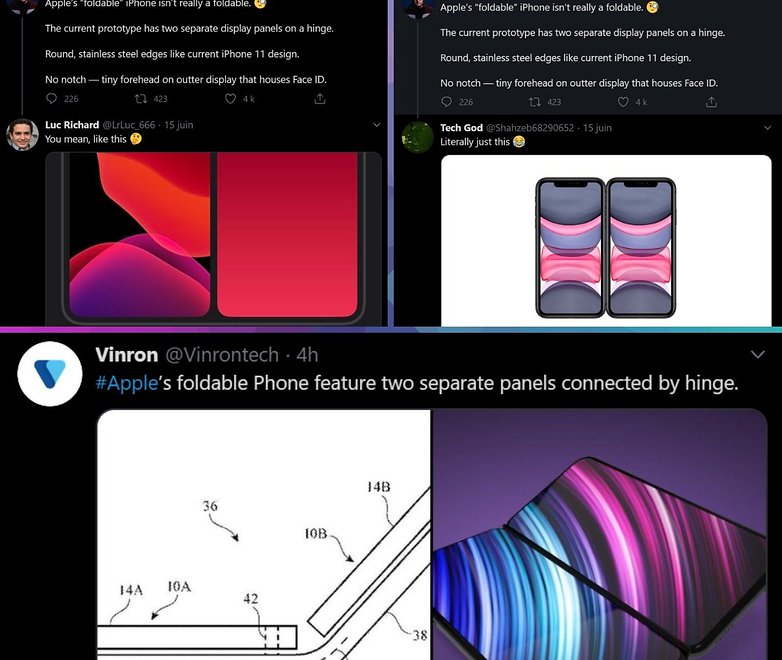
But even with a little more intellectual honesty, I can't help but see Apple coming out with an iFold that's too thick, with too little battery life, and an OS that limits the cases of dual-screen use. A conditionally foldable smartphone, with... compromises.
The patent filed for a dual-screen doesn't mean anything in itself, I remind you. Simply, it already shows that Apple is aware of the difficulties encountered by its competitors such as Samsung or Huawei. The technology of flexible displays is not yet developed.
But where I would have liked to see Apple take up the concept again, make it their own and improve it, this leak leads me to believe that Cupertino is more about avoiding or even fleeing obstacles by choosing the easy way out. Why be stubborn about making a flexible screen when you can glue two classic OLED slabs together? Isn't it practical? What's the big deal?
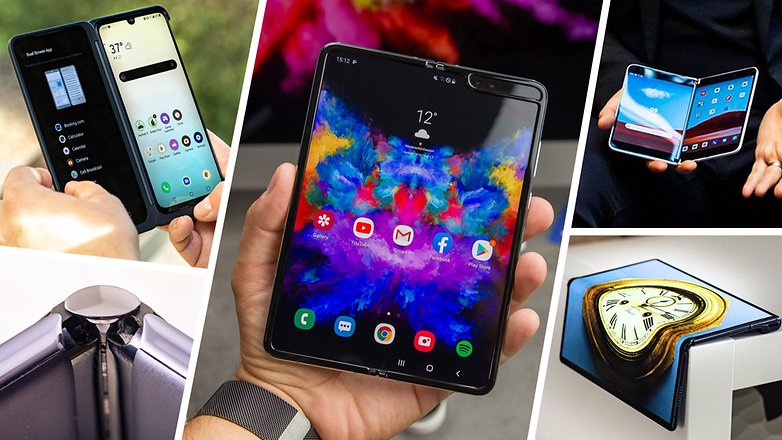
Take the iPad Pro 2020, for example, and the Magic Keyboard. Apple presented it as a truly innovative, magical concept. But this famous $300 keyboard does not allow the iPad to be used in tablet mode. To do this, you have to unhook the iPad and carry around the keyboard that is no longer useful.
This is the kind of compromise I'm pointing out that I really don't want to find on a foldable smartphone. I really think foldable smartphones can be more than just a gimmick. But manufacturers, not just Apple, need to offer real, viable products and not just phony concept phones that will disgust users.
To launch a revolution, we need to go in force, and I'm afraid that Apple is just knocking on the door of the future here, waiting for an Android manufacturer to come along and open it.






